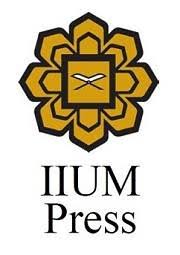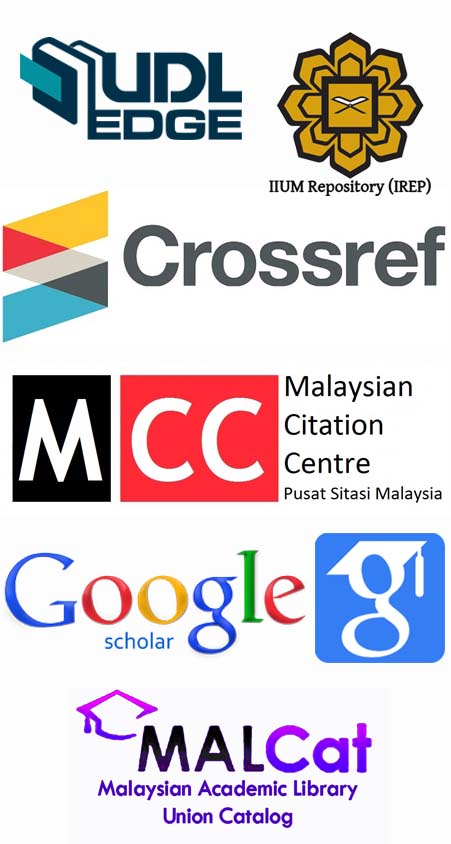AL-GHAZALI’S FRAMEWORK OF TEACHINGS PROFESSIONAL VALUES: ANALYZING THE PEDAGOGICAL PRINCIPLES IN ISLAMIC EDUCATION
DOI:
https://doi.org/10.31436/alburhn.v9i1.363Keywords:
Imam Ghazali, Islamic education, pedagogical framework, values, ethical education, spiritual growth.Abstract
Values are a cornerstone of education, serving as essential guides for the learning process. This article investigates the pedagogical principles articulated by Imam Ghazali, one of the most influential Muslim scholars of the 11th century, particularly as presented in his seminal work, "Ihya' Ulum al-Din." The study offers a comprehensive analysis of Ghazali's unique approach to teaching, which integrates ethical and spiritual dimensions aimed at character development, ethical conduct, and spiritual growth. Key values such as sincerity, humility, empathy, and justice are identified as fundamental to the educational experience within his framework. The relevance and application of Ghazali's ideas in contemporary educational settings, particularly in Islamic schools and institutions, is emphasized. Employing a qualitative methodology, this study utilizes textual analysis of Ghazali's works alongside secondary literature to deeply understand his pedagogical model. The findings indicate that Ghazali's focus on ethical and spiritual education provides a robust framework that is vital for addressing contemporary educational challenges in the Muslim world.
Downloads
References
Al-Gazzali. (2013). Intention, Sincerity and Truthfulness Book xxxvii of The Revival of The Religious Science. In T. A. F. S. By (Ed.), The Revival Of The Religious Science Ihya ulum al-din (1st ed., pp. 1–123). The Islamic Text Society.
Al-Ghazali. (2011a). Revival Of Religions of Sciences volume iv (1st ed.). Dar Al-Kotob Al-ilmiyah.
Al-Ghazali, A. H. (2011b). Revival of Religion’s Sciences: (Ihya’ Ulum Ad-din): Vol. l (1st ed.). Dar Al-Kotob Al-ilmiyah.
Al-Ghazali, A. H. (2011c). Revival of religion’s sciences: Ihya’ Ulum Ad-din (Volume III: The quarter of the destructives) (1st ed.). Dar Al Kotob Al ilmiyah.
Al Hamid, A. (2023). Konsep Pendidik dalam Pandangan Imam al-Ghazali. Adabuna : Jurnal Pendidikan Dan Pemikiran, 2(2), 77–86. https://doi.org/10.38073/adabuna.v2i2.929
Alhaib, E., & Ali, K. A. (2022). The Concept of Morals and Education in Imam Al-Ghazali’s Thought. Science Frontiers, 3(1), 48–55. https://doi.org/10.11648/j.sf.20220301.17
Anwer Sholeh, Devy Habibi Muhammad, A. S. (2022). THE CONCEPT OF MORAL EDUCATION THE PERSPECTIVE OF AL- GHAZALI AND THOMAS LICKONA. FALASIFA Jurnal Studi Keislaman, 13(1), 1–10.
Aryanti, Y., Mutathahirin, M., Rahman, I., & Mulyani, R. (2022). Teacher Analysis Study According to Imam Al Ghazali in the Book of Al Adab Fi Al-Din. Ahlussunnah: Journal of Islamic Education, 1(2), 46–58. https://doi.org/10.58485/jie.v1i2.177
Bano, N. (2017). Ethical Philosophy of al-Ghazali: an Analytical Insight. International Journal in Management and Social Science, 05(07), 175–180.
Barni, M., & Mahdany, D. (2017). Al Ghazāli’s Thoughts on Islamic Education Curriculum. Dinamika Ilmu, 17(2), 251–260. https://doi.org/10.21093/di.v17i2.921
Bayhaqi, H. N., & Masnawati, E. (2024). PENDIDIKAN AKHLAK DALAM KONSEP TAZKIYATUN NAFS PERSPEKTIF IMAM AL-GHAZALI DAN RELEVANSINYA TERHADAP DEGRADASI MORAL GENERASI MUDA Moral Education in the Concept of Tazkiyatun Nafs from Imam Al- Ghazali’s Perspective and Its Relevance to the Moral Degradat. Jurnal Keislaman Dan Ilmu Pendidikan, 4, 434–449. https://doi.org/https://doi.org/10.58578/alsys.v4i4.3440
Fahrudin, Mulyana Abdullah, A. F. (2024). INTEGRATION OF AL-GHAZALI’S HUMAN CONCEPT INTO THE ISLAMIC RELIGIOUS EDUCATION CURRICULUM AT UNIVERSITIES: CULTIVATING COMPREHENSIVE PERSONALITIES. ICONIE FTIK UIN K.H .ABDURRAHMAN WAHID PEKALONGAN.
Fayzulloeva, M. S. (2022). Moral Qualities in the Teachings of Al-Ghazali. Annals of Bioethics & Clinical Applications, 5(2). https://doi.org/10.23880/abca-16000225
Ghazali, A. L. (2005). Al ghazali Letter to a Disciple (Ayyuha’l-Walad) (1st ed.). The Islamic Texts Society.
Ghazali, I. (1993). Revival Of Religious Learnings (Ihya Ulum-Id-Din). Revival Of Religous LLarnings by Imam Ghazaali’s Ihya Ulum-Id-Din, II, 133.
Ghazzālī, 1058-1111, & Rustom, M. (2020). al-Ghazali’s The Revival of the Religious Sciences (Ihya Ulum al-Din) for the 21st Century (S. A. H. Zaidi (ed.)). KAZI Publications, Inc. https://www.academia.edu/43064176/al_Ghazalis_The_Revival_of_the_Religious_Sciences_Ihya_Ulum_al_Din_for_the_21st_Century
Griffel, F. (2020). Al-Ghazali. The Stanford Encyclopedia of Philosophy (Summer 2020 Edition).
Griffle, F. (2009). Al-Ghazali’s philosophical theology. OUP,USA.
Gunawan, G., & Lestari, A. (2021). Al-Ghazali’s Thoughts on Education and Its Relevance to Islamic Education in the Millennial Era. AJIS: Academic Journal of Islamic Studies, 6(1), 103. https://doi.org/10.29240/ajis.v6i1.2091
Gyagenda, A. (2021). The Relevance of Al-Ghazali’s Educational Views to the Contemporary System of Muslim education: Focus on Islamic Education in Uganda. Interdisciplinary Journal of Education, 4(1), 1–12. https://doi.org/10.53449/ije.v4i1.149
Hidayah, N., Rosidi, A. R., & Shofiyani, A. (2023). Konsep Ikhlas Menurut Imam Al-Ghazali dan Relevansinya Terhadap Tujuan Pendidikan Islam. Urwatul Wutsqo: Jurnal Studi Kependidikan Dan Keislaman, 12(2), 190–207. https://doi.org/10.54437/urwatulwutsqo.v12i2.957
Ilham Aly Muhsi Cahya, A. N. (2021). Pendidikan Akhlak Perspectif Imam Al-Ghazali.
Khalid Soussi. (2019). AL Ghazali Cultivates Education : A Comparison with Modern Theories AL Ghazali Cultivates Education : A Comparison with Modern Theories AL Ghazali Cultivates Education : A Comparison with Modern Theories. 4(October), 425–436.
Lubis, I. R., Suryani, I., Innayah, A., Azzahra, N., Hafiza, N., Studi, P., Konseling, B., Tarbiyah, F., Keguruan, D., Islam, U., & Sumatera, N. (2024). El-Mujtama : Jurnal Pengabdian Masyarakat Peserta Didik dalam Pandangan Imam Al-Ghazali El-Mujtama : Jurnal Pengabdian Masyarakat. El-Mujtama: Jurnal Pegabdian Masyarakat, 4(2), 729–737. https://doi.org/10.47467/elmujtama.v4i2.4331
Luthfi, R., & Purnama, S. (2022). KOMPETENSI GURU MENURUT ABU HAMID AL-GHAZALI : RELEVANSINYA DENGAN PENDIDIKAN DI ERA MODERN. 5(2), 188–203.
Ma’rufi, A. M. (2021). Teacher’ and Student’s Ethical Concept in Al Ghazali’s Prespective. Journal of Islamic Education and Pesantren, 1(1), 45–60. https://doi.org/DOI: 10.33752/jiep.v1i1.1751
Mighfar, S. (2023). Islamic Parenting Perspektif Imam Al-Ghazali. Atthufulah : Jurnal Pendidikan Anak Usia Dini, 3(2), 119–130. https://doi.org/10.35316/atthufulah.v3i2.2972
Mohammad, O., & Khasawneh, A. (2023). The Educational Philosophical Thoughts of Abu Hamid Al Ghazali (1058 - 1111) and John Dewey (1859 - 1952): A Comparative Study. Jordan Journal of Educational Sciences, 19(2), 505–519. https://doi.org/10.47015/19.2.14
Muflihin, A., & Madrah, M. Y. (2019). Implementation of Al-Ghazali�S Islamic Education Philosophy in the Modern Era. Al-Fikri: Jurnal Studi Dan Penelitian Pendidikan Islam, 2(1), 13. https://doi.org/10.30659/jspi.v2i1.4012
Musrifah, M. (2019). The Relevance of Al-Ghazali’s Tazkiyatun-Nafs Concept With Islamic Education in The Millennial Era. Nadwa, 1(1), 15. https://doi.org/10.21580/nw.2019.1.1.3899
N.Memon, M. A. (2018). Islamic Pedagogy: Potential and Perspective. Semantic. https://doi.org/DOI:10.1007/978-3-319-73612-9_9
Nasri, U., & Tabibuddin, M. (2023). Paradigma Moderasi Beragama: Revitalisasi Fungsi Pendidikan Islam dalam Konteks Multikultural Perspektif Pemikiran Imam al-Ghazali. Jurnal Ilmiah Profesi Pendidikan, 8(4), 1959–1966. https://doi.org/10.29303/jipp.v8i4.1633
Nur Eliza Mohd Noor. (2021). PERANAN GURU DALAM PELAKSANAAN E-PEMBELAJARAN PENDIDIKAN ISLAM MENURUT PERSPEKTIF AL-GHAZALI THE ROLE OF TEACHERS IN THE IMPLEMENTATION OF E-LEARNING IN ISLAMIC EDUCATION ACCORDING TO AL-GHAZALI’S PERSPECTIVE. Journal of Islamic Educational Research(JIER), 6, 52–63.
Nurhikmah. (2024). Character Education Islam from the Views of Imam Al-Ghazali َّ. Jurnal Al Burhan, 4(1), 53–66.
Downloads
Published
How to Cite
Issue
Section
License
In general, reusing or reproducing substantial portions of al-Burhān content requires permission. This includes the use of text, figures, tables, multimedia content, and any other material published in any issues of al-Burhān Journal of Qur'an and Sunnah Studies. For some instances, al-Burhān may make its content freely viewable; however, such material may require permission for reuse. To seek permission, please contact the editorial.









